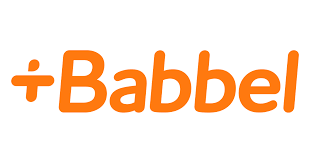The Dutch Education System: it's good and it's different

Education through the Dutch system is really good. In fact, the Netherlands is the third most educated country in the world according to the World Economic Forum! But as you have probably guessed from the title of the article, it isn't the most straight forward of systems. Aside from learning the local cultures and language, it is equally important that you have grasp of the education system too.
There are differences from city to city to consider although most schools are governed and funded by The Ministry of Education, Culture and Science (OCW for short). Those that are not, are private, fee-paying schools – much like you would find in the UK. So, let's understand the leerplichtwet, discover what a ‘cito -score is and when children are taught ‘fietsvaardigheidslessen'.
Preschool
There are options available for children before they reach school age. Preschool or voorschool starts from age 2 and is usually available for 15 hours a week split over 3 days. Daycare is available for children up until the age of 4. Day care offer full day care for up to 5 days a week. There are tax rebates for working parents (kinderopvangtoeslag) to assist with day care costs but is dependent on income and days used. Preschool users can also apply for tax rebates.
Are you an Early or Late Child?
No, this is not a question of childbirth, but is a question that you will need to understand. The compulsory age for starting school in The Netherlands is 5, however most children start school a day after their 4th birthday at basisschool (reception in the UK). Four- and five-year-olds (kleuters) are taught together as group 1 and group 2. Basically, a group is the Dutch equivalent of year groups in the England. Here they are taught through play-based learning and gradually moved onto reading and writing. Formal teaching begins in group 3.
This is where early and late comes in. Children born in the summer or autumn have 2 full years at school before they move into group 3 (late pupils). Spring and winter children are moved into group 3 before they turn 6 (early pupils). This has no bearing on intelligence or ability, but parents have been known to be proud that their child is a late pupil. Just something to be aware of.
Elementary Education
Fairy straight forward through elementary school to be honest. Homework is rare and children have lots of time to play and take part in sports. By groups 7 and 8, children are given a plot in the school garden (schooltuin) and are taught fietsvaardigheidslessen (how to cycle safety in traffic). Class sizes are usually 24 but can rise to 30 depending on individual cities. The only decision you need to make with a school is openbare or bijondere. Basically, openbare schools are funded by independent foundations set up by the government. These are always non-religious. Bijondere schools have their own board and follow religious ideas. Non-religious children are welcome and religion is only a part of the school ethos – much like Church of England schools in England. Two-thirds of the Dutch population attend bijondere schools.
The School Bell (or whistle)
The start and finish times are decided by the individual schools. Start times are typically between 8:30 and 8:45 and finish times usually between 3:00 and 3:15. Again, check individual school for their exact times. Lunch is 45 minutes in length, but schools do not provide lunches. Instead children bring their own fruithapje (fruit snack) and broodtrommel (sandwich box). Be warned, if your child stays at school you will need to pay an additional fee called overblijfgeld.You might decide that your child is going to come home for their lunch – thus avoiding the overblijfgeld!
What's Happens on a Wednesday?
I'm glad you asked! On Wednesdays, most schools close at around 12.30pm for the day. This is the time for playdates, birthday parties and sport clubs. Elementary schools who close at 12:30pm must offer after school care which is usually organised by an external organization and are not on the school site. Parents simply liase with the organizers when they are ready to collect their children.
Holidays and Attendance
Basically, when are they and what do you do if your child might need to have time off. Remember that different cities do things differently? Well, this applies to school holidays. School holidays are nationally organised with different times across 3 regions of the country. There is logic in this – to ease the holiday traffic on the nation's roads. School holidays are at least a weeklong (apart from summer which is 6 weeks long) and usually occur after 6 weeks of schooling. This can vary but a general rule of thumb is 6 weeks school and then one week off. The leerplichtwet (Dutch school attendance law) is very strict. Children are allowed to miss school but there must be specific reasons given. Fines in the hundreds have been handed out for people flouting the leerplichtwet.
Cito-toets = cito stress!
It's all been plane sailing until the final year in elementary school when pupils take cito – toets (mandatory state exams). The results of these determine the next path on the education journey. Cue stressed, anxious parents and complaints to teachers and school staff. From the test, children get a cito – score which is used by the teacher to recommend the next stage of education.
Post Cito-toets – what happens next?
Based on the cito score, children are allocated a place in one of 3 levels: VMBO, HAVO or VWO. Let's break these down.
- VMBO Lower cito-scorers attend here and can choose between theoretical or practical studies in specific field. Study usually lasts for 4 years and is known as preparatory secondary vocational education
- HAVO
Next highest cito-scorers attend at this level of education. This is known as senior general secondary education and has a duration of 5 years. - VWO
The highest scoring cito-scores attend here at pre-university level. Education takes six years, and students can continue to university (WO).
There is the option to study at a higher level once you complete your education level.
Are There Other Types of Schooling Available?
There certainly are! The Netherlands offers international schools and are one of only a few countries who subsidise this. Expect to pay approximately 3,500 euros per year per child for these or up to 15,000 euro for private offerings.
Special schools are also available across The Netherlands and are supported by the P assend Onderwijs (Inclusive Education Act). Children with additional needs can attend mainstream school and have support provided for them. However, specialist providers may be recommended for intensive support. Home schooling? Widely discouraged across the country and only allowed under extremely specific guidelines linked to religious beliefs.
So there you have it. The Dutch Education System in all its glory. Very effective based on its high ranking globally but very different also. Lots to consider and lots of research into what is right for you and your family. You must check for city to city variety in terms of start times and what each school has to offer. Tot ziens (goodbye)!
About the author
By Christina Lee, who writes about education news and technologies.
- My Life Abroad -
A selection of expat stories

"A fun compulsive read!"
J. Matcham, Amazon
"I strongly advise people ready to live abroad to read this book!"
Patrice, Amazon

 International Schools in the Netherlands
International Schools in the Netherlands Private Tuition: A Priority Among Expat Families for Their Children
Private Tuition: A Priority Among Expat Families for Their Children 5 Top International Education Systems For Expat Kids
5 Top International Education Systems For Expat Kids Babbel
Babbel Embassies and Consulates in Netherlands
Embassies and Consulates in Netherlands  A Tourists Guide to Holland
A Tourists Guide to Holland